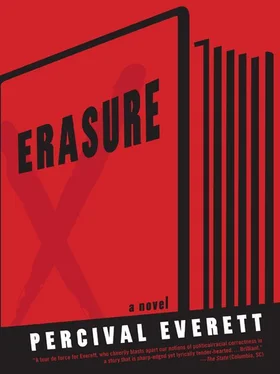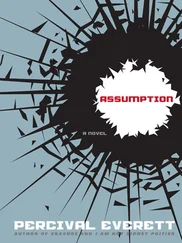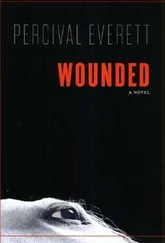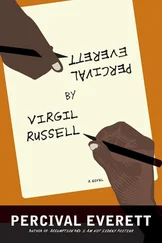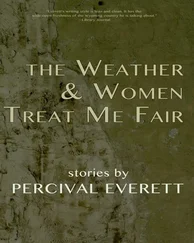Poor me! A man without a religion, without a decent lie to call my own. Giving up life for life, loving as I knew I should, and, perhaps most importantly, attempting to live up to the measure of my sister. Time seemed anything but mine, as if I were sleeping, walking and eating with a stopwatch! In my imagination, I told Mother I’d be back, took a leave from my teaching, put things in storage, packed bags, flew east on an L1011 seated next to a woman my mother’s age, eighty-two, on her way to a rosarian convention in Georgia, moved in with Mother and Lorraine.
I sat in the living room, the air still and overwarm. I’d made myself a pot of tea and was trying to control my anxiety and my imagination. I listened to the sounds of the old house, the house of my childhood, the house where I’d known my sister. Bill was asleep. Mother and Lorraine were long asleep. The house’s creaking found rhythm and I counted the cadence of the groaning, complaints, stiffenings. I considered the possibility that reasoning myself to D.C. and into that house was premature, but I had no success dispelling the thoughts. With the revelation of my brother’s woeful personal circumstances, de jure absenteeism yielded to de facto guilt and so I was as good as there.

There may be space breaks between paragraphs of texts, between lines of text, sentences or words of the text. That these spaces have some kind of narrative significance or charge is not arguable, though the weight of such import might be, and most times is, infinitesimal. What is more interesting is the fact that narrative always travels in the same direction and so the
spaces, the negative or white spaces travel the same way. Never are we dropped into a space and returned to the previous narrative position or into nothingness.

The leave of absence seemed the most logical course. After talking to my mother and determining that she really had little idea what was going on, but enough of an idea, I couldn’t simply place her somewhere. She was used to her house, knew her house, knew Lorraine and where the hell was Lorraine going to go. The saddest part of it all was the callousness of my consideration that I would only have to be gone a year because my mother would probably die. I felt like shit when I tracked down and identified that thought.

Juanita Mae Jenkins was welcomed by a talk show host named Kenya Dunston who had put Ms. Jenkins’ book on her Book Club reading list. They hugged and the audience smiled and Ms. Jenkins sat next to Kenya.
“Girl, that is some book,” Kenya said.
“Thank you,” said Ms. Jenkins.
“Three hundred thousand copies sold,” Kenya said, shaking her head and making a ticking sound with her mouth.
The audience applauded.
“I know, I can’t believe it,” Ms. Jenkins said.
“Girl, you gone be rich. Well, you know I love the book, but tell me, how did you learn to write like that?
“A gift, I guess.”
“Sho’ nough.” Kenya mugged at the audience and they laughed again. “Before we talk about the book, we want to hear a little bit about you. You’re not from the South, are you?”
“No, I’m from Ohio originally. Akron. When I was twelve I went to visit some relatives in Harlem for a couple of days and that’s what the novel comes from.”
“The language is so real and the characters are so true to life. Girl, I just couldn’t believe this was your first book. Where’d you go to college?”
“I went to Oberlin for a couple of years, then moved to New York.”
“A man?”
“Ain’t it always?”
The audience laughed.
“Well, that didn’t work out,” Ms. Jenkins said.
“Never does.”
“Never does. And so I got this job at a publishing house. I watched these manuscripts come by and these books come out and I thought, where are the books about our people? Where are our stories? And so I wrote We’s Lives In Da Ghetto.”
The audience applauded and the camera panned across their adoring faces and smiles.
“You struck a chord,” Kenya said.
“I guess I did.”
“Film rights?” Kenya mugged again to the audience.
Ms. Jenkins nodded.
“Millions?”
Ms. Jenkins shyly put off the question.
“But a lotta money, right, girlfriend?” Kenya slaps her guest’s knee.
“Why shouldn’t we get some of that good money, chile,” Ms. Jenkins said.
The audience exploded with applause and cheering.
“Let me read a short piece from the middle of the book,” Kenya said. “Yo, Sharonda, where you be goin in a hurry likes dat?” D’onna ax me when she seed me comin out da house.“Ain’t none yo biznis. But iffan you gots to know, I’se goin to the pharmcy.” I looks back at my dough to see if Mama comin out.“The pharmcy? What fo?” she ax.“You know,” I says.“Naw,” she say. “Hell, naw. Girl you be pregnant again?”“Mights be.”
The audience blew out a collective sigh.
“Girl, that is some writing, right there,” Kenya said.
“Thank you.”
“I don’t want to give the story away, but my favorite part is when Sharonda tap dances in a show for the first time. That was just so, so, so moving.” Kenya smiled at Ms. Jenkins, then held up her book. “The book is We’s Lives In Da Ghetto and the author is Juanita Mae Jenkins. Thank you for being with us.”
“Thank you.”

Young doctors have a lot of debt. This was a fact that I had not known, but knew now. School, a new practice, equipment. Especially, a practice like my sister’s. She relied on some grants and was part-time staff at a hospital to help support the place. My sister had taken out an insurance policy on herself, but much of that went to paying off her bills. My mother had some savings, but she was not wealthy. The house was at least paid for. What had been my father’s office was a money drain. And until I could sell my sister’s share, a third of the Women’s Clinic Southeast belonged to me. The two physicians in the clinic with my sister were as young as she, terrified that they were the next targets and unwilling to commit themselves any further into the operation by buying me out.
 DOCTOR 1: This whole venture has always been iffy. I’m nearly ready to cut my losses and get out.DOCTOR 2: We have done some good work here.DOCTOR 1: What the hell does that mean? We hand out birth control pills and condoms to girls who won’t use them. We treat people who act like we owe it to them. What are we doing? Being role models? These kids laugh at us.DOCTOR 2: We didn’t start this to be popular.DOCTOR 1: But we are popular. We’re popular the way a drunken uncle is popular because he falls asleep with money falling out of his pockets.DOCTOR 2: You’re bitter. You’re sounding like a Republican.DOCTOR 1: That’s suppose to fill me with guilt. There’s a new political correctness. I go to parties and I’m afraid to admit what I do for a living. “I practice medicine at a women’s clinic,” I say. “Oh, you perform abortions,” they say and look at me like I’m the villain.DOCTOR 2: That’s true.DOCTOR 1: You’re damn right. It’s okay to say you’re pro-choice, just as long as you don’t say you’re for abortion. (Pauses) I’m terrified.DOCTOR 2: What about our patients?DOCTOR 1: They’ll divide up and go to the other clinics.DOCTOR 2: What would Lisa say?DOCTOR 1: Lisa’s dead.
DOCTOR 1: This whole venture has always been iffy. I’m nearly ready to cut my losses and get out.DOCTOR 2: We have done some good work here.DOCTOR 1: What the hell does that mean? We hand out birth control pills and condoms to girls who won’t use them. We treat people who act like we owe it to them. What are we doing? Being role models? These kids laugh at us.DOCTOR 2: We didn’t start this to be popular.DOCTOR 1: But we are popular. We’re popular the way a drunken uncle is popular because he falls asleep with money falling out of his pockets.DOCTOR 2: You’re bitter. You’re sounding like a Republican.DOCTOR 1: That’s suppose to fill me with guilt. There’s a new political correctness. I go to parties and I’m afraid to admit what I do for a living. “I practice medicine at a women’s clinic,” I say. “Oh, you perform abortions,” they say and look at me like I’m the villain.DOCTOR 2: That’s true.DOCTOR 1: You’re damn right. It’s okay to say you’re pro-choice, just as long as you don’t say you’re for abortion. (Pauses) I’m terrified.DOCTOR 2: What about our patients?DOCTOR 1: They’ll divide up and go to the other clinics.DOCTOR 2: What would Lisa say?DOCTOR 1: Lisa’s dead.
Читать дальше
